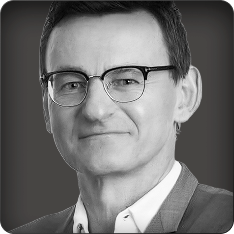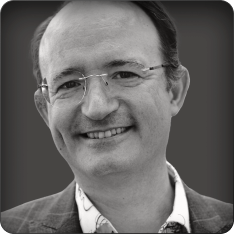Have a specific experiment in mind and wondering about the best quantum control and electronics setup?
Want to see what our quantum control and cryogenic electronics solutions can do for your qubits?
Interview
Prof. Andrew Dzurak, Founder and CEO of Diraq, sat down with Jonatan Kutchinsky of Quantum Machines to discuss how silicon-CMOS qubits are redefining the path to scalable quantum computing. The interview highlights Diraq’s breakthroughs in manufacturing, integration, and hybrid control that move quantum systems closer to commercial reality.
Key topics discussed:
– CMOS-based qubits allow integration of hundreds of millions of qubits per chip.
– Operating at 1 Kelvin enables classical and quantum electronics to run side by side.
– Fast, low-latency feedback demonstrated with Quantum Machines’ OPX systems.
– Real-time optimization with Nvidia DGX Quantum, the first ever integrated QPU-GPU-CPU system by NVIDIA and Quantum Machines.
– Expansion into the United States to build global capacity and commercialization.
– Vision for energy-efficient, utility-scale quantum computers deployed in data centers.
The discussion makes clear that silicon-CMOS qubits offer a practical and scalable route to fault-tolerant quantum computing. By leveraging existing semiconductor technology, hybrid quantum-classical control, and AI-driven optimization, Diraq is building a foundation for quantum computers that can tackle real-world challenges in science, industry, and beyond.
Share it with others

Founder and CEO
BIO
Prof. Andrew Dzurak is the Founder and CEO of Diraq and a world leader in silicon-based quantum computing. Formerly a professor at UNSW Sydney, he pioneered the development of silicon-CMOS qubits and has led breakthroughs in high-fidelity quantum operations. Through Diraq, he is driving the commercialization of scalable, energy-efficient quantum computers built on standard semiconductor technology.

VP of Cryogenic Electronics
BIO
Jonatan Kutchinsky is VP Of Cryogenic Electronics at Quantum Machines, where he leads global strategy and collaborations with research and industry partners. With a background in experimental quantum physics and deep expertise in quantum technologies, he focuses on advancing hybrid quantum-classical control and enabling the scalability of next-generation quantum computers.
Have a specific experiment in mind and wondering about the best quantum control and electronics setup?
Want to see what our quantum control and cryogenic electronics solutions can do for your qubits?